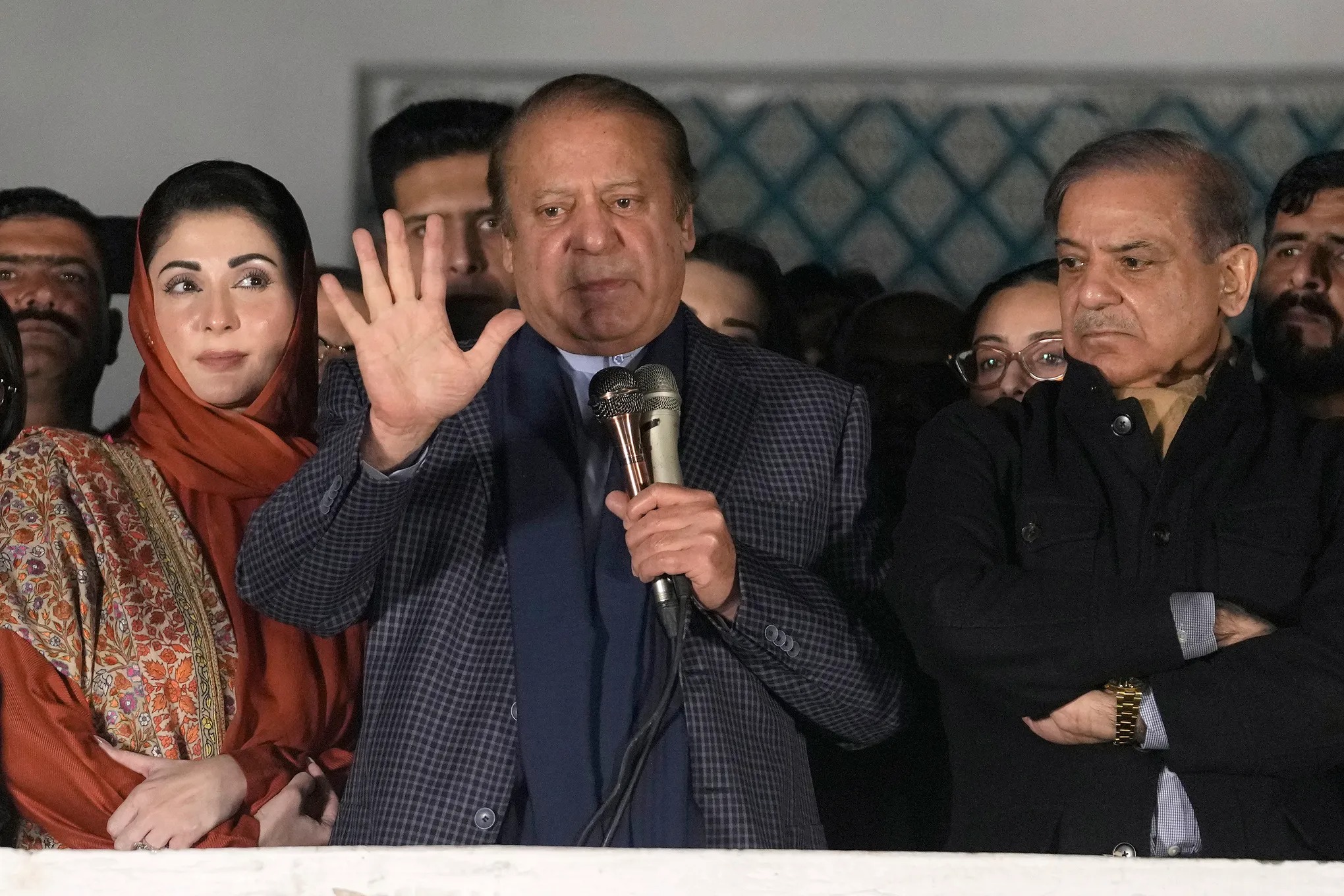The former prime minister of Pakistan, Nawaz Sharif, had anticipated an easy victory for his party in the country’s parliamentary elections, paving the way for his return to the top job for a fourth term.
However, the current vote count suggests a challenging journey for Sharif, with independent candidates supported by his incarcerated rival, Imran Khan, taking the lead.
This unexpected turn of events has disrupted the plans of Sharif and the security establishment supporting him, compelling him to consider forming a coalition government.

Sharif to Pursue Coalition Government (Credits: The Seattle Times)
Contrary to his earlier stance, Sharif, facing the unexpected election results, announced plans on Friday to explore the possibility of a coalition government. Just a day earlier, he had firmly rejected the idea of a coalition, expressing his desire for a single party to govern Pakistan for a full five-year term after casting his vote.
Imran Khan, a former cricket star turned Islamist politician, was disqualified from participating in the elections due to criminal convictions, which he contends are politically motivated.
His party’s candidates, running as independents, faced additional challenges as they were barred from using the party symbol, a cricket bat, on the ballots.
Despite these setbacks, candidates supported by Khan’s Pakistan Tehreek-e-Insaf party, or PTI, led in the vote count, winning 99 seats out of the 266 National Assembly constituencies announced by the election oversight body.
Sharif’s Pakistan Muslim League party secured 71 seats, with the election postponed in one constituency due to the killing of a candidate.
Although no party secured an outright victory with a majority, Sharif acknowledged the need for a coalition government, stating, “we don’t have enough of a majority to form a government without the support of others, and we invite allies to join the coalition so we can make joint efforts to pull Pakistan out of its problems.”
He emphasized the necessity of collaboration to address the country’s challenges.However, Pakistan’s deeply divided political landscape poses challenges to the formation of a robust coalition government committed to addressing issues such as high inflation, energy shortages, and militant attacks.
Despite the lack of a clear majority, Sharif’s supporters celebrated at his party headquarters, and Sharif addressed party workers after arriving amid a shower of rose petals.
In contrast, PTI chairman Gohar Khan asserted that the party’s own count indicated it securing a total of 150 seats, enough to form a government. However, a majority requires 169 seats in the 336-seat National Assembly.























